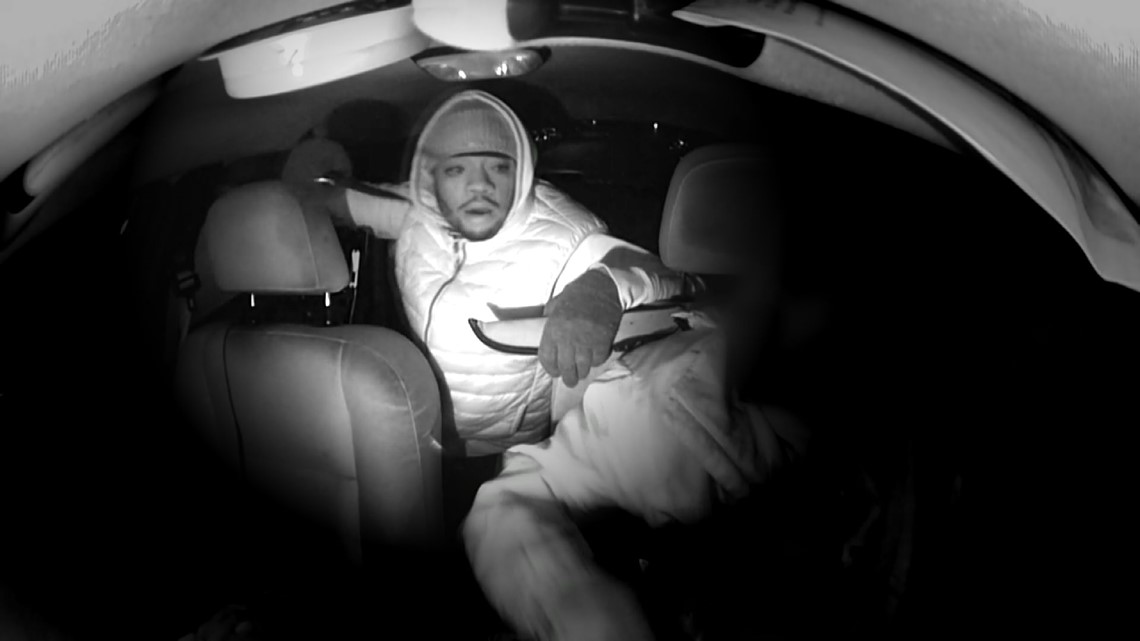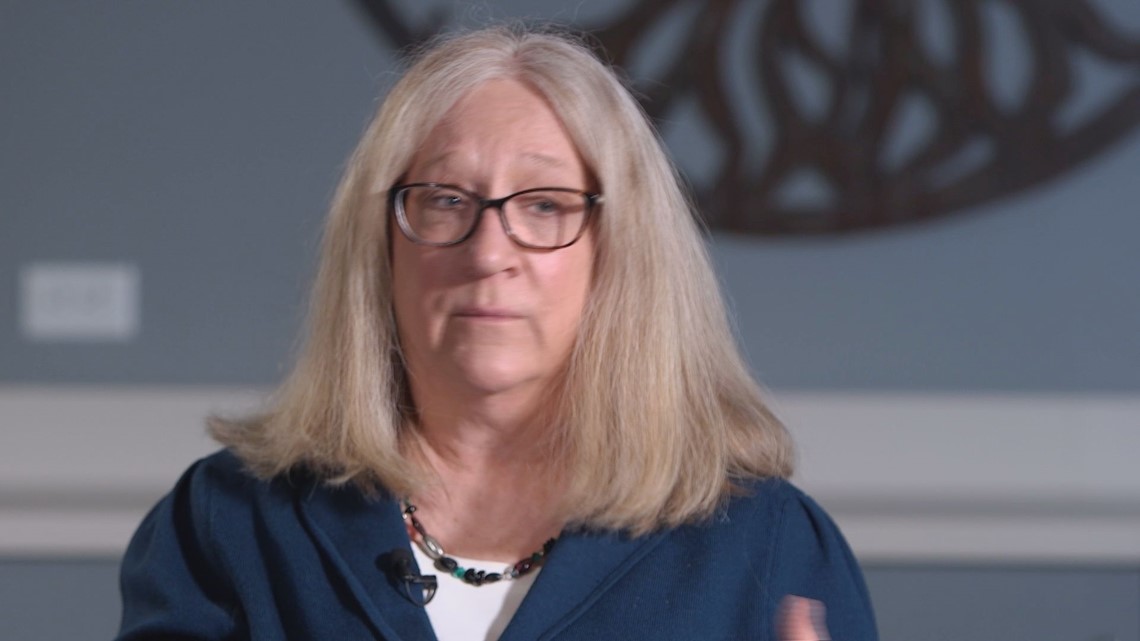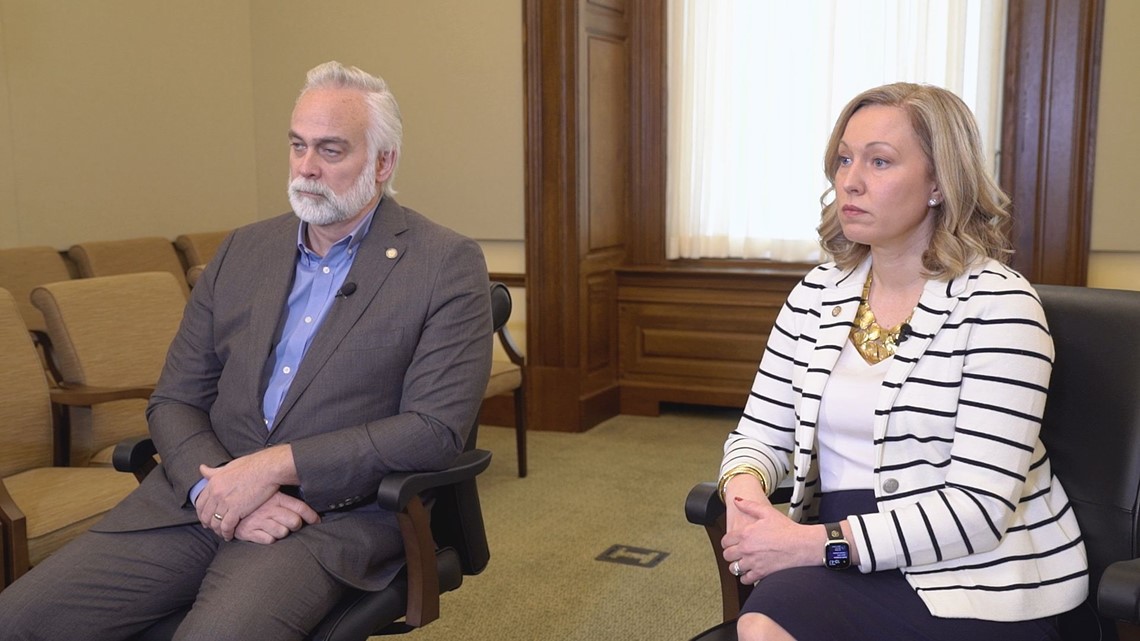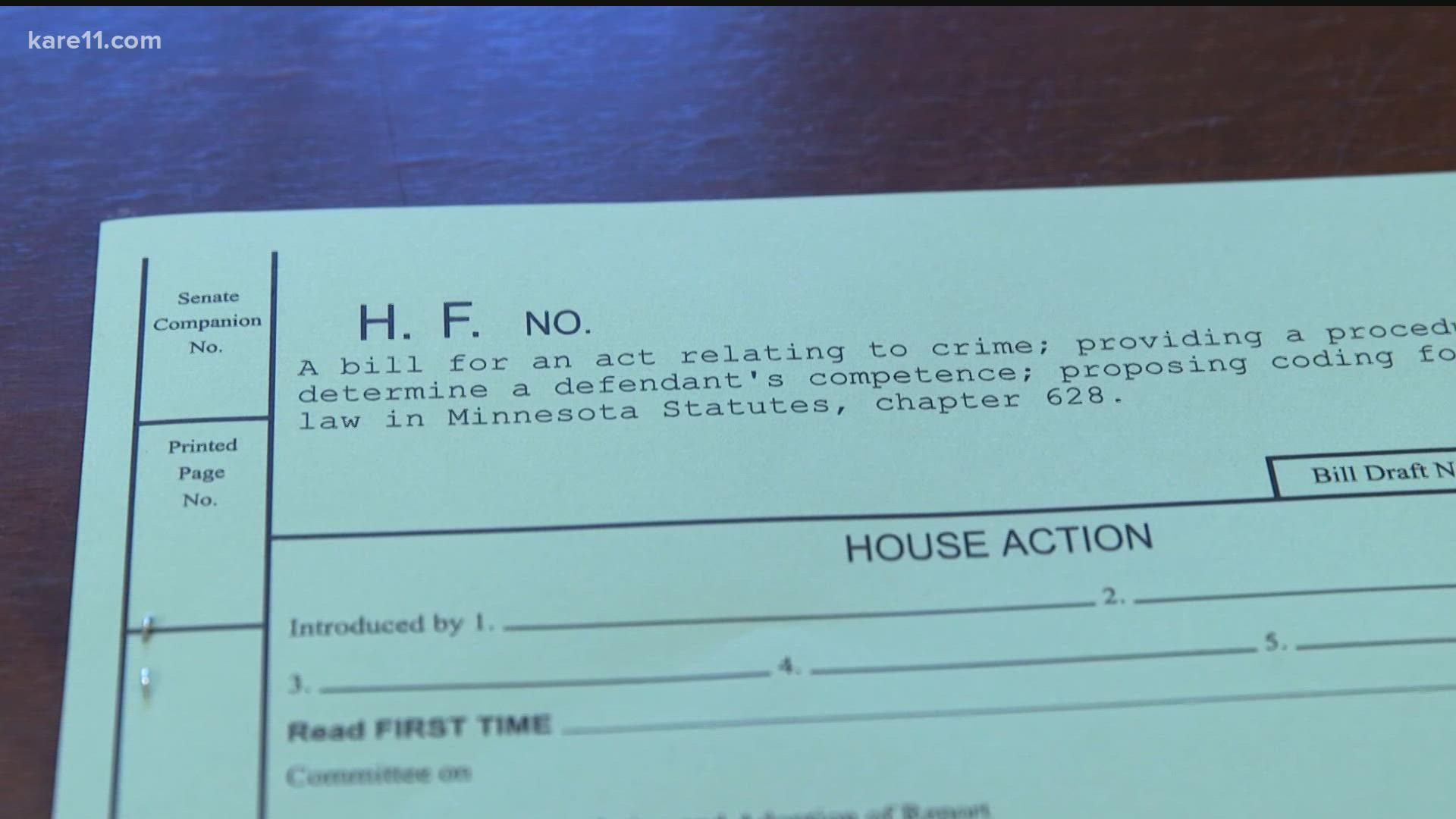ST PAUL, Minn. — Darkese Shorter’s criminal history reads like a case study for what recently introduced bipartisan legislation sets out to prevent.
In November 2017, Shorter threatened to stab a Minneapolis cab driver as he tried to rob him. Charged with aggravated robbery and assault, Shorter was found to be so mentally ill that he was ruled incompetent to stand trial.
Shorter would be released back into the community, where he was charged with several violent crimes, including an assault and two armed robberies in the span of three months.
He was ultimately found competent enough to stand trial and in 2020 was sentenced to 67 months in prison.


A bill introduced by Republican Rep. Tony Albright and DFL Rep. Heather Edelson sets out to address thousands of cases like Shorter’s where mentally ill defendants have fallen into gaps in Minnesota’s mental health and criminal justice system – not getting the care or oversight they need.
“This is a really good start to try to address some of the gaps in our mental health system but also the public safety concerns that you have really covered a lot in your stories,” Edelson said.
In a series of reports last year, KARE 11 exposed how mentally incompetent defendants are often released without the appropriate treatment or supervision, leading to tragic consequences, including brutal assaults, rapes, and murders --including mass shooting.
Albright and Edelson’s bill would create a new position called forensic navigators, “to have the necessary stick along with the carrot” Albright said, to not only be an advocate to help mentally incompetent defendants get treatment but also ensure that they’re not endangering the public.
The bill would also create competency restoration programs in the community and in jails to help restore defendants to competency so that they can stand trial. Such programs are virtually non-existent in the state.
That could also help to solve another systemic problem revealed by KARE 11. In Minnesota, it’s currently no one’s job to restore criminal defendants to competency.
For years, restoring defendants to competency had been the job of the Department of Human Services. But in 2018, citing a lack of beds, DHS stopped that program and began releasing individuals back to the streets while still incompetent to stand trial.
In most jurisdictions, no one has picked up the slack.
As KARE 11 found, dozens of those defendants whom a judge had ordered to be committed, but DHS released while still incompetent, went on to commit serious crimes.
“We don’t do our society any good by not making sure that people with mental illnesses get treatment - we just don’t,” said Sue Abderholden, executive director of the National Alliance on Mental Illness Minnesota who has helped work on the proposed legislation.


She points out the vast majority of defendants found incompetent are not violent. Instead, they’re often charged with lesser crimes connected with poverty, homelessness, and drug abuse.
As the courts and police struggled with how to handle those defendants, they cycled through jails and emergency rooms and the streets often without having meeting their most critical needs.
“So, we want to make sure that we really are providing stability for that individual in their own life,” Abderholden said. The forensic navigators would be tasked with following up with the individuals to help secure housing and insurance, in addition to providing access to medications and treatment.
Abderholden says the end goal is to better ensure that when someone with mental illness comes in contact with the criminal justice system, that it is a onetime deal - not an endless cycle.
The major roadblock to this bill passing? Money. Creating new positions in government along with building competency restoration programs could cost tens of millions of dollars.


But both legislators said there’s a higher cost of doing nothing.
“It has to get done,” Albright said. “There is no other solution and for Representative Edelson and I to agree on this matter speaks to the urgency to which we have to move it forward.”
Watch more KARE 11 Investigates:
Watch the latest from the I-Team in our YouTube playlist:

